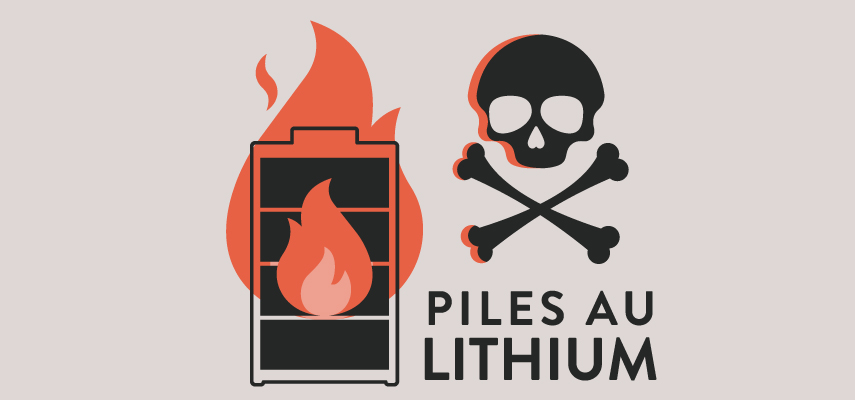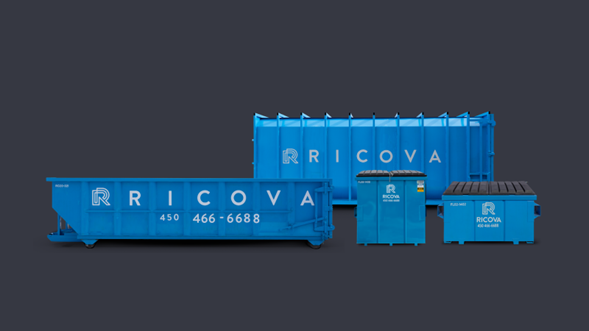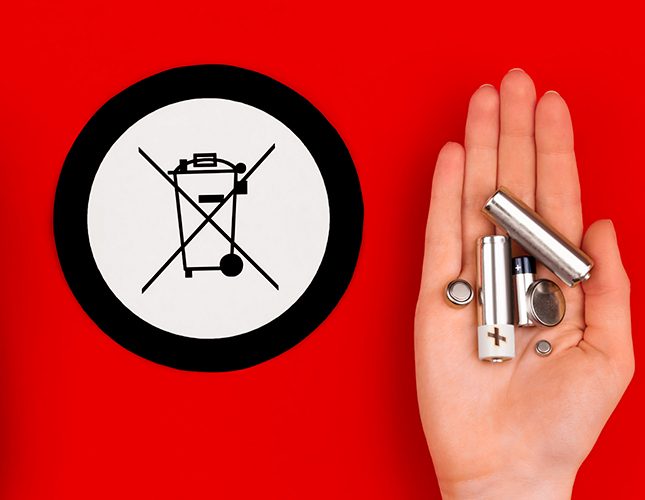Here's how to recycle your lithium batteries safely
Despite the good will of the population, who respond quite positively to the numerous awareness campaigns, good intentions can sometimes lead to dramatic consequences. For example, to be recycled, lithium batteries must not end up in the recycling bin because, if they are crushed, damaged, or exposed to water, they can catch fire and cause serious accidents, putting the health and safety of workers at risk. Over the past two or three years, sorting centers, like Ricova’s, have noticed a considerable increase in fires caused by electronic waste containing lithium batteries. To avoid the risk of fire, you need to know how to dispose of them safely.
Why are lithium batteries dangerous?
They are extremely dangerous when damaged, crushed, or exposed to water ; they explode like fireworks and can easily ignite paper, cardboard, and/or other materials near them.
The lithium battery will burn until all the lithium inside is burned, which can take several tens of minutes depending on the size of the battery. For example, a car battery can create a flame 6 feet high and burn for over 30 minutes. When lithium batteries end up at the sorting center, they are in the middle of materials that can catch fire, hence, the danger of disposing lithium batteries in the recycling bin.
“Fire extinguishers are not yet advanced enough to properly extinguish the fires created by lithium batteries. Putting water on a fire created by a lithium battery only fuels the blaze even more. Therefore, the need to act is urgent, because lithium battery production is growing, and sorting centers need help to successfully minimize the risk of fires, 90% of which is created by lithium batteries,” asserts Robin Dignard, certified trainer in public and industrial health and safety, and author of the report, Les piles au lithium dans un bac bleu, un mélange incendiaire!.
What are the risks associated with recycling in a recycling bin?
The biggest risk is fire; batteries ignite violently when damaged, crushed, or exposed to water. Because it comes into contact with paper and cardboard, when disposed of in a recycling bin, the fire hazards associated with lithium batteries are very real and have caused between four and eight fires at Ricova’s sorting centers every year.
Fire hazards are present throughout the recycling chain, from the collection truck to the creation of bales of recyclable materials. These risks are accentuated by the various sources of heat present: the machinery and the chemical reactions with other elements present in the sorting centers, all of which endangers the health and safety of employees. The smoke that escapes, when a lithium battery catches fire, is extremely toxic and can also cause serious burns.

How can I avoid the danger of recycling these batteries?
Lithium batteries are not recycled via the recycling bin. Sorting centers, like Ricova, are not equipped to recycle these more powerful but more dangerous batteries. For example, employees can’t distinguish an AA battery from the stream of recyclable materials rushing past. To avoid endangering workers’ health by causing a fire and fumes that are extremely toxic to them, we strongly advise against disposing of these batteries in the recycling bin, commonly known as the blue bin.
How to recycle lithium batteries safely?
Lithium batteries can be recycled at designated collection points, such as ecocentres and drop-off centers in your area. You can consult the list of participating companies by downloading Recyc-Québec’s “Ça va où?” application, or by visiting the Call to Recycle website. We also recommend keeping lithium batteries in a closed container and taping the positive end of the battery (the side with the bulge) to protect it and reduce the risk of fire.
How can we raise public awareness of the dangers of recycling lithium batteries?
To better guide the public and reduce the risk of fire, a good solution would be to place a sticker on all recycling bins with a clearly visible pictogram prohibiting the disposal of hazardous materials such as lithium batteries. The fewer lithium batteries in the recycling bin, the lower the risk of fire.
“Citizens want a simple process for disposing of their lithium batteries, which are now found in a huge number of objects, including smartphones. With this pictogram, they’ll learn that lithium batteries don’t go in the recycling bin. I’m confident that they will then learn how to dispose of their lithium batteries. This effort could save the lives of sorting center workers,” concluded Mr. Dignard.








